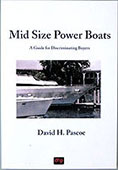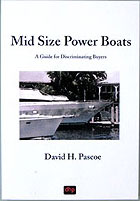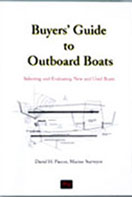It's Got Recent Overhauls!
Dealing With Engines Part I
by David Pascoe
We hear this statement a lot, but the reality rarely lives up to the claim.
Typical Situation
After signing a contract, a client arrives in town from out of state for a survey. He was told by the buyer that the engines were recently overhauled. Upon completion of the survey, the buyer is told by the surveyor that there is no evidence of recent overhauls. The engines are rusty, there's no sign of a bolt having been turned. Maybe there's some sign of recent spray paint activity of the hit and miss variety.
Or worse yet, the purported overhaul consisted of a cylinder head overhaul, or repair of some other unfortunate condition.
Possibly the "overhaul" consisted of nothing more than repair of a faulty condition, thus raising more questions than it answers. Was it an overheat condition? Was all the damage repaired, or is there some remaining? Is it a cover up for yet a larger problem?
The buyer is at best very disappointed, at worst quite angry at the broker or seller for misrepresenting the condition of the engines. He walks away in a huff after having traveling many miles, spent a lot of money, and wasted his time.
Save Grief
This happens so often that I thought I'd address the issue and maybe save you some grief.
Rule Number One:
There is no such thing as an overhauled engine until such has been proven.
Rule Number Two:
It can't be proven unless the seller is willing to provide detailed invoices by a reputable repairer that actually represent what was done.
Rule Number Three:
Hour meter readings mean nothing. We just ran into a case where the engines were represented as being recently overhauled when the only thing the owner did was to install new hour meters. That was what was being passed off as overhauls! Yes, that constitutes fraud. But unfortunately, too many people are willing to engage in that sort of misrepresentation.
Get Invoice
If a seller has had legitimate overhauls done on the engines or any other major machinery, he should be more than happy to provide you with a copy of the invoice. Wouldn't you? But if there is some reluctance to get them to you, or some stalling, then chances are you are being lied to. And to make a deal on a boat under these circumstances is courting disappointment.
If a seller or broker is representing machinery as recently overhauled, be sure to get the invoices. If the seller is reluctant to provide them, then either take a walk, or be prepared to receive bad news.
Most reputable brokers won't make these representations without themselves verifying the facts. Legally, they can be held liable if the claims are false. Quite a few brokers that we know will ask for copies of the bills themselves before sticking their necks out with such an advertising claim. That should tell you something about how perplexing this issue can be.
When You Do Get Invoices:
When was the last time you saw a $10,000 invoice with no details included? A reliable document is one that contains an extensive parts list that tells you exactly what was done. Bills that contain only lump sums, lacking in parts list, or are hand written on blank forms without an imprinted company name, or other such irregularities should be viewed with suspicion.
Recent Overhaul Affects Sale Price
As you know, $50,000 invested in refurbishing any part of a boat won't increase market value directly proportional to that amount. Fresh engine overhauls, of the variety that can be documented by invoices, will raise the price significantly. About 10-15% on average, though this can go higher depending on desirability of the vessel, and it's age. Conversely, a pair of clapped out engines will reduce the price proportionally by the cost of overhauling.
Part II: What Does an Overhaul Entail?
Posted March 22, 2000

















David Pascoe is a second generation marine surveyor in his family who began his surveying career at age 16 as an apprentice in 1965 as the era of wooden boats was drawing to a close.
Certified by the National Association of Marine Surveyors in 1972, he has conducted over 5,000 pre purchase surveys in addition to having conducted hundreds of boating accident investigations, including fires, sinkings, hull failures and machinery failure analysis.
Over forty years of knowledge and experience are brought to bear in following books. David Pascoe is the author of:
In addition to readers in the United States, boaters and boat industry professionals worldwide from nearly 80 countries have purchased David Pascoe's books, since introduction of his first book in 2001.
In 2012, David Pascoe has retired from marine surveying business at age 65.
On November 23rd, 2018, David Pascoe has passed away at age 71.
Biography - Long version